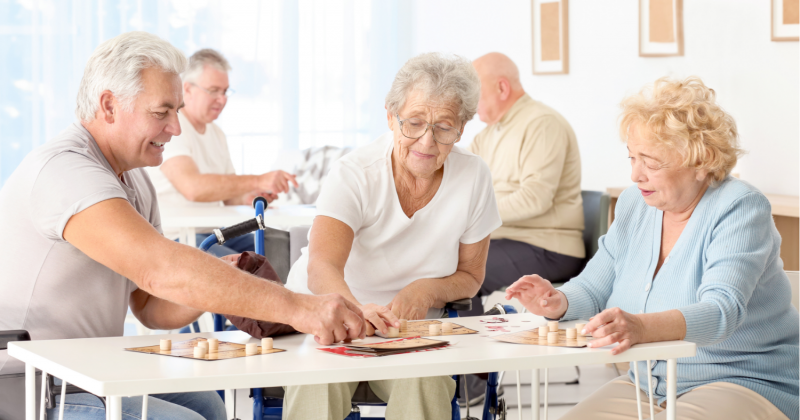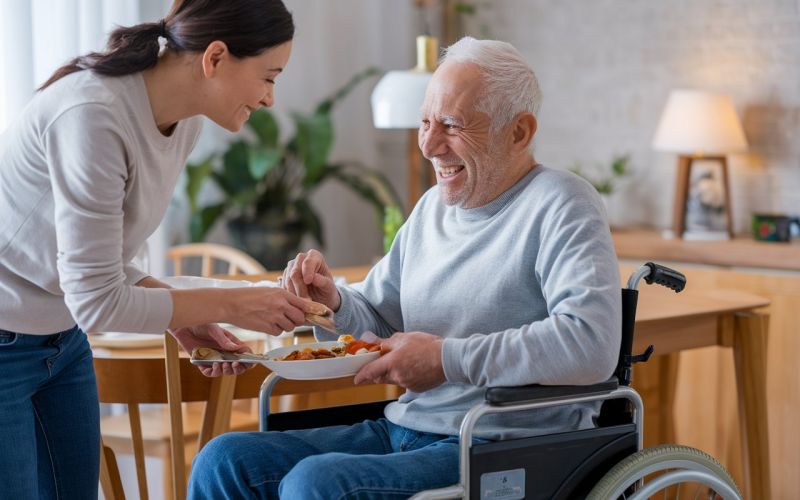Promoting Social Engagement and Support for Elderly Patients
iSavta | 28.01.2024

As our population ages, it is crucial to recognize the importance of social engagement and support for elderly patients. Numerous studies have shown that active participation in social activities can significantly improve the well-being and overall quality of life for older adults. However, many elderly individuals face barriers that hinder their ability to engage in social interactions. This article provides practical strategies to support and engage elderly patients in social activities, promoting their mental, emotional, and physical well-being.
Recognize the Value of Social Activities
The first step in supporting elderly patients is acknowledging the significance of social engagement for their well-being. Regular social interactions can help combat feelings of loneliness, depression, and isolation. By recognizing the importance of social activities, healthcare professionals, caregivers, and family members can actively encourage and create opportunities for seniors to participate in various social events.
Identify Individual Interests and Abilities
Each elderly patient is unique, with their own set of interests, abilities, and preferences. To effectively engage them in social activities, it is essential to identify what activities they enjoy and are capable of participating in. This can be achieved through open communication, actively listening to their desires, and observing their interests. By tailoring activities to their specific preferences, elderly patients will be more motivated and engaged.
Foster Community Connections
Creating a sense of community for elderly patients can greatly enhance their social engagement. Encourage them to participate in local senior centers, community events, or religious organizations. These venues provide opportunities for interaction, sharing experiences, and establishing new friendships. Additionally, community centers often offer a wide range of activities such as art classes, exercise programs, and educational workshops, catering to various interests and abilities.
Embrace Technology
In today's digital age, technology can be a powerful tool for connecting elderly patients with others. Encourage the use of smartphones, tablets, or computers to facilitate virtual social interactions with family members, friends, and even online communities. Video calls, social media platforms, and online forums allow seniors to engage in conversations, share experiences, and stay connected, regardless of physical distance.
Volunteer Opportunities
Engaging in volunteer work can bring a sense of purpose and fulfillment to elderly individuals. Help them explore volunteer opportunities in their community that align with their interests and abilities. This could include assisting at local charities, tutoring younger individuals, or engaging in environmental projects. Volunteering not only promotes social interaction but also allows seniors to utilize their skills and experience while making a positive impact on society.
Intergenerational Programs
Intergenerational activities can bridge the generation gap and foster meaningful connections between elderly patients and younger individuals. Collaborate with schools, colleges, or local organizations to develop intergenerational programs, such as reading clubs, mentorship initiatives, or joint art projects. These activities promote mutual learning, understanding, and appreciation while providing opportunities for seniors to share their wisdom and experiences.
Physical Activity and Exercise
Regular physical activity not only promotes physical health but also enhances social engagement for elderly patients. Encourage them to participate in exercise classes, walking groups, or outdoor activities. These activities not only provide opportunities for social interaction but also contribute to improved overall well-being. Moreover, exercising together with peers creates a supportive environment, encouraging seniors to maintain an active lifestyle.
Flexibility and Adaptation
It is essential to recognize that elderly patients may face physical limitations or health conditions that can impact their participation in social activities. Therefore, flexibility and adaptability are key in supporting their engagement. Modify activities to accommodate their needs, ensuring accessibility and safety. This may involve providing transportation, offering assistive devices, or adapting the pace and duration of activities to match their capabilities.
Conclusion
Supporting and engaging elderly patients in social activities is vital for their well-being. By recognizing the value of social engagement, identifying individual interests, fostering community connections, embracing technology, offering volunteer opportunities, promoting intergenerational programs, encouraging physical activity, and maintaining flexibility, we can enhance the social lives of our elderly population. Together, we can create a society that values and includes every generation, ensuring that our elderly patients lead fulfilling and connected lives.












